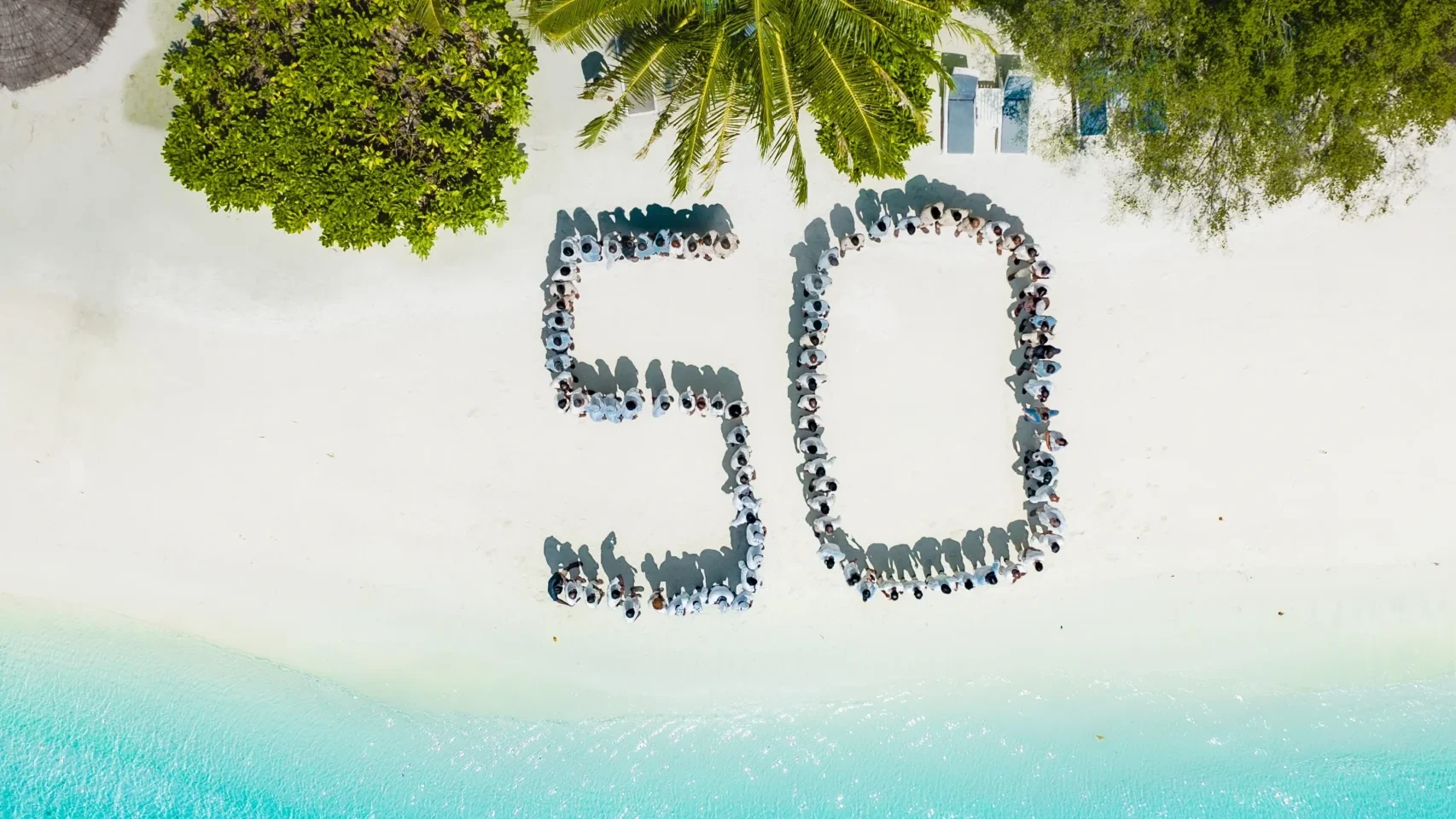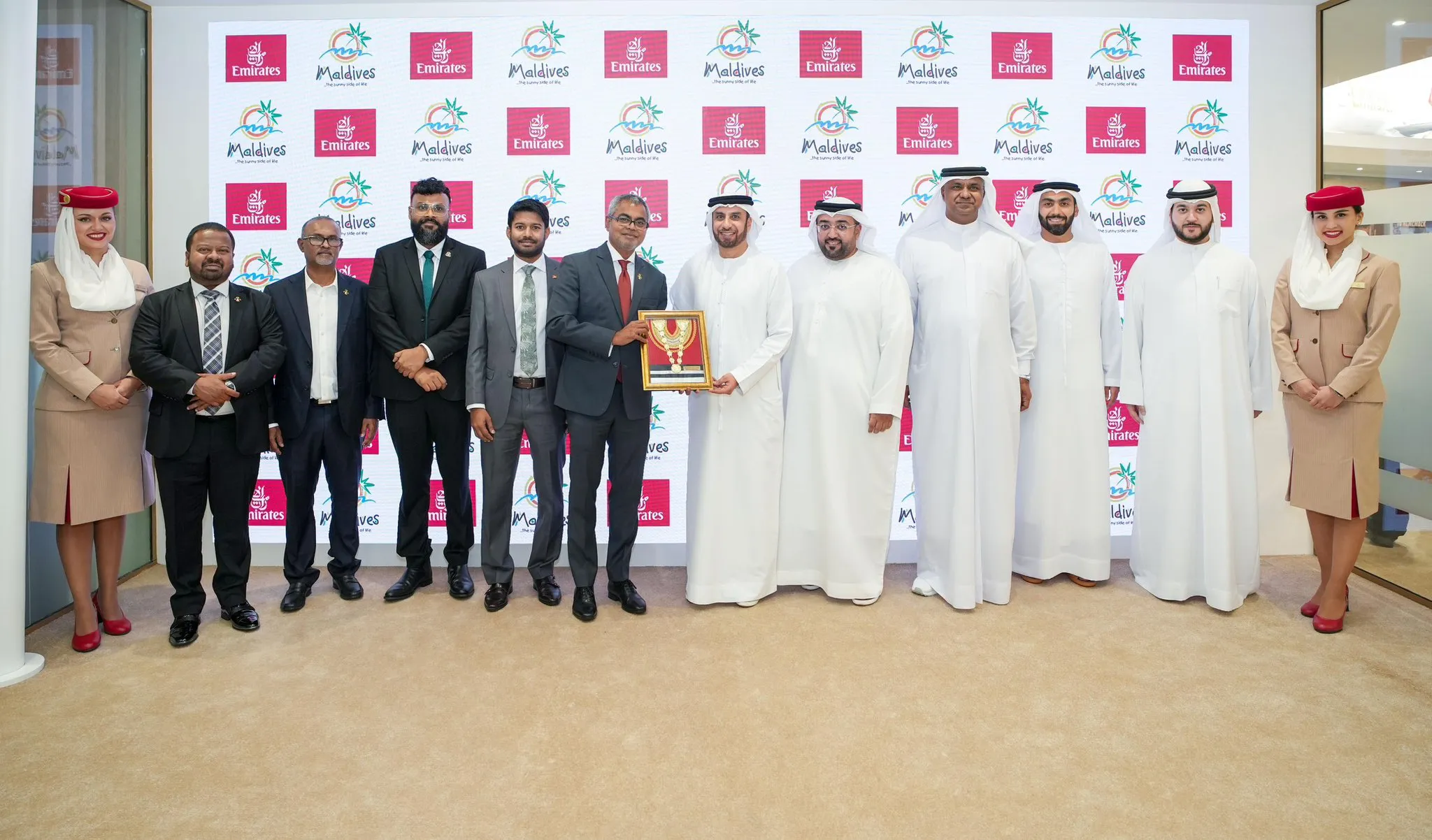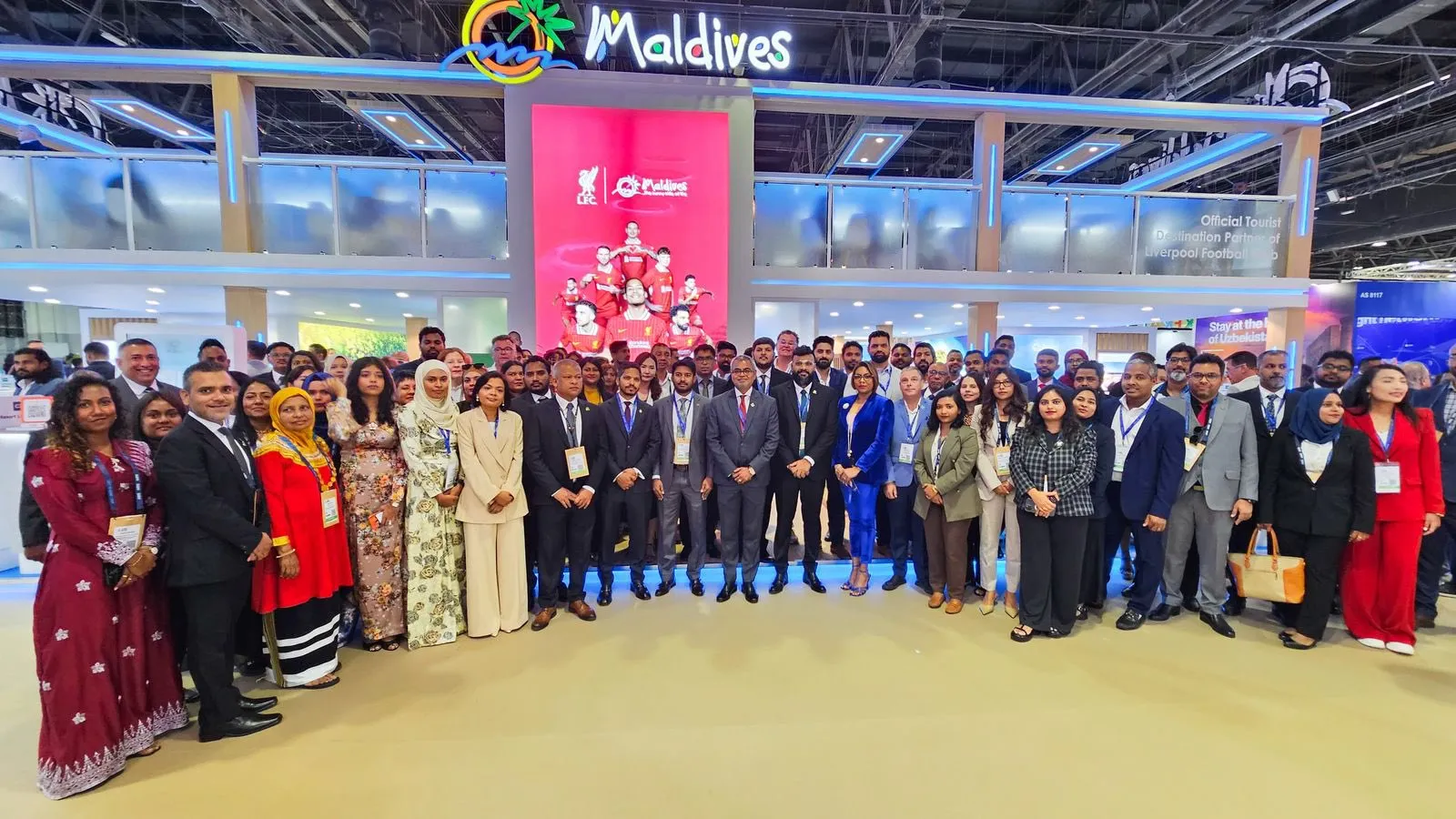This significant milestone serves as a testament to the hospitality industry’s power to redefine the way travellers engage with their destinations. Sheraton Maldives Full Moon Resort & Spa embraces the Island’s Golden Jubilee by reflecting on its beginnings, leveraging valuable insights to shape the future of Furanafushi for the next 50 years.
Reflecting on the Evolution of the Island
The narrative of the tourism industry in the Maldives is a truly inspirational one. Emerging as a travel gem in the 1970s, the archipelago initially lacked tourism infrastructure and struggled to attract investments. Despite these humble origins, the Maldives has now ascended to a prominent position in the global tourism landscape. Renowned for its concept of barefoot luxury, exclusive retreats, and awe-inspiring landscapes, the Maldives stands as a testament to the remarkable transformation of a once-unexplored destination into a world-class haven for travellers.
Furanafushi itself holds a storied history, initially serving as a picnic destination for residents of Malé before being transformed into a resort. It later became known as Australia Island and was widely marketed under the tagline, ‘Found! A Lost Paradise’.
In December 1973, the island welcomed the 56-key Sheraton Maldives, originally named Furana, as the fifth resort in the entire Maldivian archipelago. Underscoring the destination’s early commitment to enhancing the stay experience, clocks were regularly kept an hour early in Furana to give guests more time than they expected.
In April 1976, the island resort moved under the management of Wayne Reid, one of Australia’s best-known sports administrators, in a five-year lease that catalyzed an influx of investment and expansion.
The early days of Furanafushi and Sheraton Maldives Resort & Spa are a testament to the growth of the island and its ongoing influence on the appeal of the Maldives as a bucket list travel destination. As the resort evolves with the industry, it maintains its heritage and remains dedicated to preserving both its own history and the history of its surroundings.
Recognising the Role in Hospitality
As one of the leading forces in global hospitality, Sheraton Maldives Full Moon Resort & Spa has been dedicated to uplifting island life and preserving the natural beauty that makes the destination extraordinary.
Beyond traditional hospitality, Sheraton Maldives Full Moon Resort & Spa connects with the local community through initiatives like school invitations, providing insights into our dynamic industry and our commitment to sustainability. During Ramadan, the resort also extends warmth to organizations like the Fiyavathi Orphanage, fostering community bonds.
The commitment to environmental stewardship by the resort is evident in initiatives like the Adopt A Coral program, where guests actively contribute to coral preservation. Our innovative water bottling plant reduces plastic waste by purifying seawater on-site.
For 50 years, Furanafushi has been a sanctuary for residents and global travellers. At Sheraton Maldives Full Moon Resort & Spa, the historic tranquillity is preserved while evolving to meet the changing needs of the community and the diverse expectations of guests.
Staying Ahead of the Hospitality Curve
Adapting to the ever-growing need to align with global consciousness around environmental responsibility Sheraton Maldives Full Moon Resort & Spa remains ahead of the hospitality curve in terms of sustainability initiatives, leveraging its synergetic relationship with the natural surroundings to educate guests and elevating its eco-conscious offerings. The resort embraces modern technology to contribute to its efforts, including using AI-powered cameras to identify areas of food waste disposal, innovative Air Conditioning Systems that automatically adapt room temperatures to reduce energy consumption, and gardens that produce vegetables and herbs, as well as watermelon and cucumber crops.
As the bridge between technology and sustainability strengthens, the resort continues to drive forward-thinking solutions that will pioneer green tourism around the world, with plans to implement a biogas plant to transform food waste into gas for kitchen stoves and a vibrant chicken farm to produce organic eggs and meat on-site.
By using technology to advance sustainability, Sheraton Maldives is shaping a world where environmental awareness is naturally integrated into our daily lives, championing the preservation of the natural island as we look forward to its brighter, greener future.
A Look at the Next 50 Years
Throughout its 50 years, Furanafushi has seen pioneers, people, and policies shape its attraction on the global stage, its position among neighbouring islands, and its impact on the local community. In the next 50 years, the same will remain – and it is up to us to actively participate in the protection, preservation, and promotion of the island.
To honour the history of Furanafushi, and to highlight the culture of the residents, Sheraton Maldives Full Moon Resort & Spa stands as a beacon of authentic Maldivian hospitality, inviting guests and residents alike to join its journey of tropical transformation as it seeks to maintain its original beauty while cultivating new ways of discovering true paradise.








